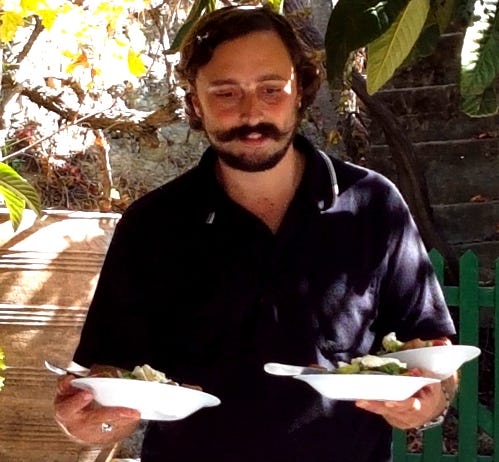
Our last few newsletters have been a bit doom and gloom, discussing the horrors of the recent Greek wildfires and the problems of overtourism. Time to get back to the positive sides to Greece, and the reasons it suffers from overtourism… people can’t get enough of it.
One of those pleasures is its food. The Cretan Diet is known to be one of the healthiest in the world, although it’s very similar to what you will eat all over Greece. It blends pulses, olive oil, fresh fruit and vegetables, lots of fresh fish… and the robust but health-giving red wine too.
In addition, the diet incorporates most of the other requisites for healthy eating, including nuts, spices, garlic, bread, cheese, and meat. Some people refuse some foods such as meat and cheese, believing them to be unhealthy, but the Cretan Diet shows that a moderate amount of all these items is definitely good for the body.
Cretan Diet Studies
Research that was begun in 1956 by the innovative American nutritionist Dr Ancel Keys compared diets, diseases and death rates in seven countries across the world, including Japan, Italy and the USA. Greek studies were undertaken in Corfu and Crete.
Crete had by far the lowest mortality rates for both heart diseases and cancer. In Finland in 1986, for example, there were 972 such deaths per 100,000 people. The figure for Crete was 38 deaths, the lowest in the world.
Similarly, Crete had the lowest rate of deaths from other causes, and lowest incidence of disease. So impressed was Dr Keys by the findings, that he began to follow the Cretan Diet himself… and lived to be 100!
First Hand Experience
We understood more fully why the Cretan Diet was so healthy when we did a special food and drink tour of Crete a few years ago, with our friend Isi from GoCrete. We visited farms, we visited markets, we visited restaurants which had their own farms, hotels with farms in the family, we visited olive oil producers, and we visited friends of Isi’s who were growing their own fruit and veg.
What stood out was that everything, absolutely everything, was organic. It wasn’t a conscious choice in the way it would be in many other countries - we’re going to go organic. It was just the natural way people felt about growing their food. They didn’t want to use (or pay for!) pesticides and fertilizers when they could grow perfectly healthy vegetables and fruit without.
Meraki
It was on this trip that we also learned a new Greek word, ‘meraki’, which we kept hearing over and over from farmers, winemakers, and others. It means to do something with passion, with all of your heart. We liked it so much that Donna used it as the name of the music duo she formed soon afterwards: Meraki.
Thinking of Crete
We were also thinking of Crete this week for two other reasons. A friend of ours has a house in Azogires in southern Crete. She was flying back to France and told us how busy everywhere was, especially Athens Airport, busier than she’d ever known it. Overtourism again?
The second reason was because we wanted to book an airport taxi as we’re soon flying back to the UK. I emailed our usual guy to see if he was free, but he wasn’t. He said that he and his partner had closed their taxi business about two weeks earlier, and were moving to live on Crete. They were in Italy, driving to Crete, having given up their home in East Anglia. They’d bought a house on the north coast, east of Chania, which they said needed a lot of doing up. But what an adventure!
Greek Salad
Whether we’re in Greece or not, we enjoy Greek salads. They’re easy to make, healthy, and you can make up a big bowl and have a ready-made lunch or a side dish for supper. We’ve been having them alongside several spanakopita, admittedly store-bought but excellent. It keeps us going till we can have the real thing again.
Yammas!
Mike and Donna










